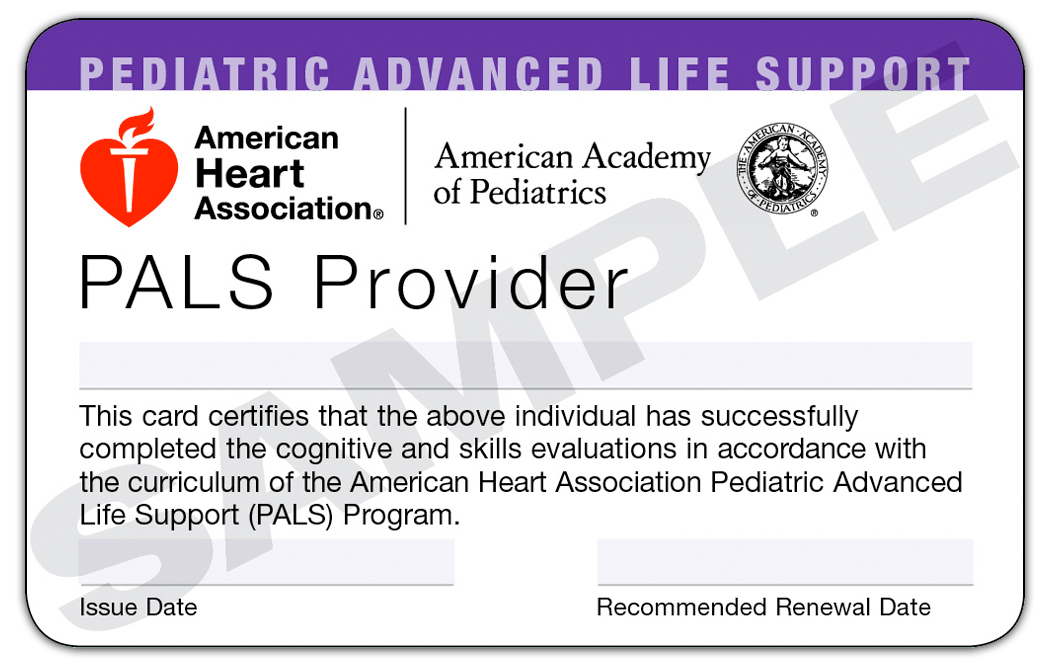

PALS Course

Fees
The pals course builds on the foundation of lifesaving Basic Life Support (BLS) for Healthcare Providers skills. The student should be very comfortable in infant and child BLS skills and also be able to recognize a variety of heart rhythms It emphasizes the importance of continuous, high-quality CPR and the importance of team dynamics, communication, systems of care, and immediate post-cardiac arrest care. Airway management and related pharmacology are also covered in this PALS course.
Small and large-group sessions are utilized to teach skills in a stress free environment followed by testing stations where case-based scenarios are presented supported by video. In order to successfully complete the course, you must demonstrate skills competency at all learning stations and pass the CPR and AED skills test, bag-mask ventilation skills test, and a Megacode test. In addition, a 50 question written test must be passed with a minimum score of 80%. Upon successful completion, students will receive an ACLS Provider card that is valid for two years.
To be successful in any PALS course, students should be able to identify ECG rhythms and should know pharmacology specific to cardiopulmonary arrest and other cardiopulmonary emergencies before beginning the course. It is strongly recommended that students review the PALS course materials and complete a pre-course self-assessment using the tools in their student materials before starting the course.
Course Includes:
• Key changes in advanced cardiovascular life support, reflecting
the 2020 American Heart Association Guidelines for Cardiopulmonary
Resuscitation and Emergency Cardiovascular Care
• Basic life support skills, including effective chest compressions, use of a bag-mask device and use of an AED
Perform high-quality child CPR AED and infant CPR per AHA BLS recommendations
Recognize cardiopulmonary arrest early and begin CPR within 10 seconds
• Recognition and early management of respiratory and cardiac arrest
• Recognition and early management of cardiac rhythms that may precede cardiac arrest conditions such as symptomatic bradycardia
Differentiate between unstable and stable patients with arrhythmias
Perform early interventions for respiratory distress and failure
Differentiate between respiratory distress and respiratory failure
Differentiate between compensated and decompensated (hypotensive) shock
Perform early interventions for the treatment of shock
Airway management
• Related pharmacology
• Team dynamics
• Effective communication as a member and leader of a resuscitation team
Clients are expected to sign up for the classes for the times offered. However, if desiring an alternate time, please send and email followed up with a text to [email protected], (813) 720-1113 and every effort will be made to accommodate the desired times.

"When every second counts"
© Matters 2 The Heart
Follow